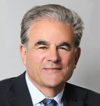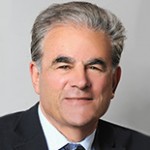
 KQED’s State of Health covered the Petris Center’s newly published paper in health affairs, “Differing Impacts Of Market Concentration On Affordable Care Act Marketplace Premiums.” The article covers the responses of Dr. Scheffler and others, including Covered California Director Peter Lee, in response to the paper’s findings:
KQED’s State of Health covered the Petris Center’s newly published paper in health affairs, “Differing Impacts Of Market Concentration On Affordable Care Act Marketplace Premiums.” The article covers the responses of Dr. Scheffler and others, including Covered California Director Peter Lee, in response to the paper’s findings:
“The folklore in economics is that more choice is better,” economist Scheffler said. If offered too many choices in health insurance, “it becomes too much for consumers to look at and analyze and really absorb. So you’re better off having a smaller number of choices to plan on and pick from.”
The full article can be read on KQED’s website here. More information about the Health Affairs paper can be found here.



 Petris Center Director Dr. Richard Scheffler was quoted in the New York Times article “Is the Drive for Success Making Our Children Sick?” published on January 2nd.
Petris Center Director Dr. Richard Scheffler was quoted in the New York Times article “Is the Drive for Success Making Our Children Sick?” published on January 2nd.
 The Robert Wood Johnson Foundation’s Changes in Health Care Financing and Organization (HCFO) initiative hosted a webinar on November 17th, 2015 entitled “Is Rate Review the Answer to Lower Health Insurance Premiums?” The webinar discussed the impact of state-level rate review regulations on health insurance premiums. The Petris Center’s Richard Scheffler and Brent Fulton, and Ann Hollingshead, University of California, Berkeley; and Pinar Karaca-Mandic, University of Minnesota, discussed their recent HCFO-funded work on this first evaluation of state rate review authority in the individual market during the years immediately after the enactment of the ACA, 2010-13, with an emphasis on whether rate regulation, coupled with loss ratio requirements, moderates health insurance premium increases.
The Robert Wood Johnson Foundation’s Changes in Health Care Financing and Organization (HCFO) initiative hosted a webinar on November 17th, 2015 entitled “Is Rate Review the Answer to Lower Health Insurance Premiums?” The webinar discussed the impact of state-level rate review regulations on health insurance premiums. The Petris Center’s Richard Scheffler and Brent Fulton, and Ann Hollingshead, University of California, Berkeley; and Pinar Karaca-Mandic, University of Minnesota, discussed their recent HCFO-funded work on this first evaluation of state rate review authority in the individual market during the years immediately after the enactment of the ACA, 2010-13, with an emphasis on whether rate regulation, coupled with loss ratio requirements, moderates health insurance premium increases.
 Petris Center Director Dr. Richard Scheffler was recently interviewed by Hector Rodriguez, Current Chair of the Ph.D. program in Health Policy. In the interview, Dr. Scheffler discusses his decision to found the the Health Services and Policy Analysis PhD program at the UC Berkeley School of Public Health in 1988 and serve as the founding chair of the program for its first decade, developments in the field of health policy, and the future of the program.
Petris Center Director Dr. Richard Scheffler was recently interviewed by Hector Rodriguez, Current Chair of the Ph.D. program in Health Policy. In the interview, Dr. Scheffler discusses his decision to found the the Health Services and Policy Analysis PhD program at the UC Berkeley School of Public Health in 1988 and serve as the founding chair of the program for its first decade, developments in the field of health policy, and the future of the program.
 “Professor of Health Economics and Public Policy at the University of California-Berkeley (USA), Richard Scheffler, said that Spain needs to reform its health system towards an integral and coordinated system to cope with the aging of the population and in that way reduce health spending… ‘Between 1996 and 2010, despite the crisis, the health spending per capita increased at an annual rate of 3.5 percent. From 2014, the forecasting managed by the World Bank is that this growth will stabilize at 0.5 percent annually. Nevertheless, according to this institution, Spain will not be able to allocate more resources to the health budget. This is an important problem when thinking about health policy. Spain has to be more effective and efficient in their health system,’ he stressed.”
“Professor of Health Economics and Public Policy at the University of California-Berkeley (USA), Richard Scheffler, said that Spain needs to reform its health system towards an integral and coordinated system to cope with the aging of the population and in that way reduce health spending… ‘Between 1996 and 2010, despite the crisis, the health spending per capita increased at an annual rate of 3.5 percent. From 2014, the forecasting managed by the World Bank is that this growth will stabilize at 0.5 percent annually. Nevertheless, according to this institution, Spain will not be able to allocate more resources to the health budget. This is an important problem when thinking about health policy. Spain has to be more effective and efficient in their health system,’ he stressed.”